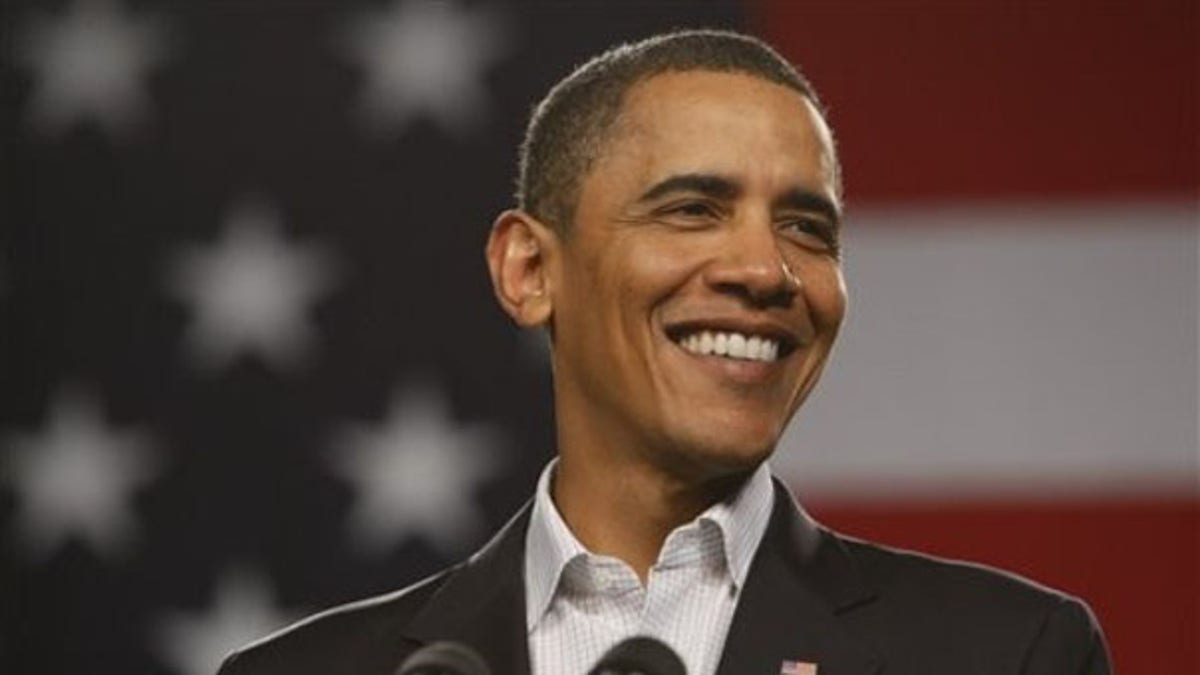
Friday: President Obama smiles at a town hall meeting at Lorain County Community College in Elyria, Ohio. (AP Photo)
WASHINGTON -- Coming off one of the most difficult weeks of his presidency, Barack Obama has beefed up his political staff and is expected to deliver an uncompromising State of the Union address. Aides said Sunday that the White House wasn't making any abrupt policy shifts, even as the message was retooled to focus more sharply on job creation.
If anything, an unfinished agenda from 2009 will grow larger as, in addition to tackling health care and unemployment, the president presses for a bipartisan commission to tackle the budget deficit against resistance from Republicans.
White House officials said Obama campaign manager David Plouffe would be brought on as a political consultant as the White House gears up for the midterm elections.
The president's party is facing a stiff headwind from an electorate angry about high unemployment and what they see as ineffectual government, White House officials said. Republican Scott Brown's capture of the Massachusetts Senate seat Tuesday was a first shot in what Democrats worried would be hard-fought contests in November.
"People are working harder," White House senior adviser David Axelrod said Sunday on ABC's "This Week," referring to the economy. "If they have a job, they're working harder for less. They're falling behind. That's been true for a decade. They look at a wave of irresponsibility from Wall Street to Washington that led to that. And those were the frustrations that got the president elected in the first place, and they were reflected again on Tuesday" in the Massachusetts election.
Republicans, meanwhile, said their victory in Massachusetts was spurred by opposition to the health overhaul. "The message in Massachusetts was absolutely clear," Senate Minority Leader Mitch McConnell of Kentucky said on NBC's "Meet The Press." "The exit polls that I looked at said 48% of the people in Massachusetts said they voted for the new senator over health care. Only 5% mentioned any other issue. The American people had a victory in Massachusetts, and they were sending us the message 'Stop and start over.' "




